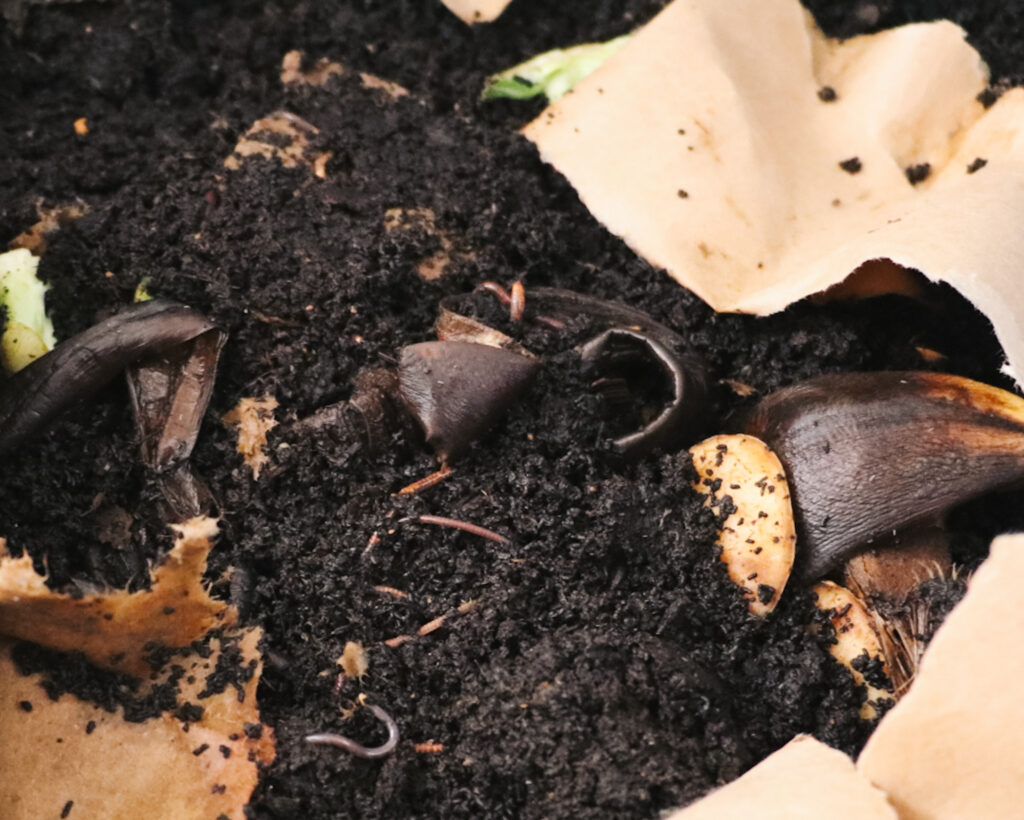Sustainable living requires us to take an in-depth look at our lifestyle. All of our choices impact the world around us. It can be overwhelming when googling how to live more sustainably. Up comes 50+ or 100+ different ways to live a more sustainable lifestyle. While every single suggestion is fantastic, it can be hard to figure out where to start. Below are 5 ways to live more sustainably.
5 Ways to Live More Sustainable
1. Waste Less Food
Food waste is a major problem in the United States, not only on the consumer level but retail level as well. It is estimated that 30-40% of food is wasted annually in the United States, resulting in a loss of billions of pounds of food. This food could be used to help families in need, but rather is sent to landfills. Currently, the U.S. has a goal to reduce food waste by 2030.

At the consumer level, we can work to reduce our own personal food waste. The easiest way to do this is to buy only what you need. A key factor in my family’s quest to reduce food waste is meal planning and shopping only for what we need for those meals. We plan for a week at a time and it has saved us time, energy, and money. We no longer have the dreaded question- “what’s for dinner?” and we no longer have uneaten veggies rotting in the back of the fridge. Another factor is learning how to properly store and use food before it expires. Understanding where and how food is stored will prevent waste. This is one of my goals this year!
2. Use Less Water
Water is not an infinite resource. When water is wasted or overused, it puts a strain on the local water supplies and can deplete reservoirs for necessary water. Simple ways to use less water, like turning the faucet off when brushing your teeth or doing the dishes, add up in the long run.
Not only using less water in your daily life but eliminating other water wastes you may not even think about. Ensure that your faucets and toilets are not dripping. Just a few drops a day will add up to hundreds of gallons wasted a year.
3. Limit Single-Use Plastic
We live in a world where plastics are everywhere. It’s hard, if not nearly impossible, to escape them. Reducing plastic consumption, especially single-use plastic, is a simple way to live more sustainably. Single-use plastics have their place in the world, such as the doctor’s office, but if we can limit our use of single-use plastics at home we can make small improvements for the environment.

I think people have the misconception that it’s okay to use single-use plastics because they can be recycled. When in actuality, plastic doesn’t break down, it just becomes so small that it eventually ends up as microplastics we can’t see. Opting for more sustainable, plastic-free options can be a bit more expensive upfront but they reduce costs in the long run and are better for the environment.
4. Purchase less
A great and simple way to live more sustainably is to purchase less. Buying fewer things reduces the amount of waste we create. It reduces the number of emissions required to manufacture and transport products. Opt for mending the clothes you already own before going out and buying new ones, especially fast fashion. Be intentional with your purchases, my husband and I put a number on the number of purchases we bring into our house to make us think about what it is we’re buying. Try to buy “buy it for life” items and take good care of them so they last. Look for second-hand options before purchasing new ones. Not only is purchasing less good for the environment, but it’s good for your wallet too.
5. Grow Native Plants
When planting your garden consider adding native species to your area. Native gardens are more sustainable because they require less water, fertilizers, and other resources to survive. Native plants are adapted to your specific area. They can survive droughts or harsh winters depending on your hardiness zone. Planting and growing native plants is a great way to live more sustainably and help your local ecosystem.


Living more sustainably does not have to be expensive. In fact, it’s quite the opposite. Be intentional with your purchases. Make a goal to use less water, waste less food and find alternatives to single-use plastic. It can be overwhelming to begging living more eco-friendly. Even just adopting one of these changes is better for the environment and climate in the long run. Be mindful of how you use your time and energy to make impactful changes.





